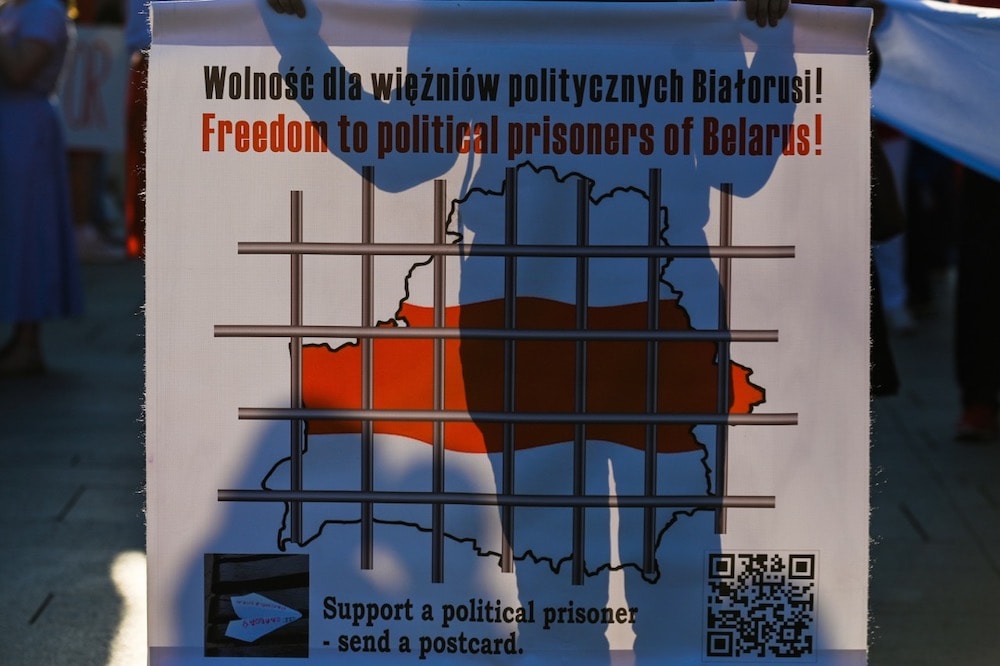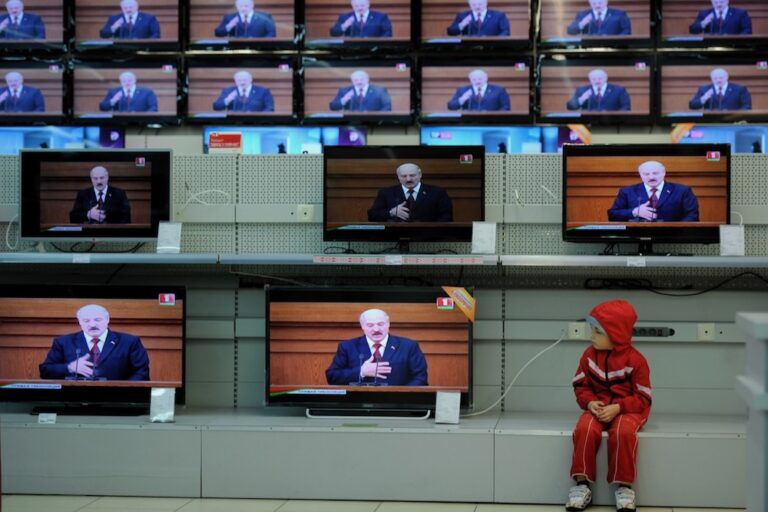"The new mechanism should have a mandate to: document patterns of human rights violations and abuses committed in Belarus, with particular focus on those which amount to international crimes; identify those responsible; and advance much-needed future accountability."
This statement was originally published on humanrightshouse.org on 13 February 2023.
Human Rights House Foundation joins international and Belarusian CSOs in urging Human Rights Council member and observer states to establish an independent investigative mechanism to complement and follow-up on the work of the existing OHCHR examination.
To Permanent Representatives of Member and Observer States of the UN Human Rights Council:
Excellency,
The Human Rights Council will consider the report and possible renewal of the mandate of the OHCHR examination of the human rights situation in Belarus at its 52nd session. We, the undersigned national, international and Belarusian civil society organisations, urge your delegation to seize the moment to establish an independent investigative mechanism to complement and follow-up on the work of the existing OHCHR examination.
The new mechanism should have a mandate to: document patterns of human rights violations and abuses committed in Belarus, with particular focus on those which amount to international crimes; identify those responsible; and advance much-needed future accountability. Distinct from the OHCHR examination on Belarus, whose mandate was limited to violations in the run-up to and in the aftermath of the 2020 presidential election, such a mechanism should have an expanded mandate to ensure a focus on more recent and ongoing serious human rights violations in Belarus, in addition to reporting on long-term, systemic human rights issues.
When the Human Rights Council originally mandated the OHCHR examination at its 46th session, to be overseen by the High Commissioner for Human Rights, many delegations argued that the Council was pursuing a “graduated” response to the human rights crisis in Belarus. As the human rights situation in Belarus had rapidly deteriorated following the August 2020 presidential elections, the Human Rights Council decided that a new mechanism was needed, specifically to examine the events of the presidential election of August 2020, with the associated widespread and systematic human rights violations and possible crimes under international law.
There has been no accountability for the grave human rights violations committed during the 2020 period under the scope of OHCHR examination’s mandate, and many of the people arbitrarily detained remain behind bars on politically motivated charges. The report of the OHCHR examination to the Human Rights Council at its 49th session stated that there are “no effective remedies available domestically for Belarusians subjected to the unnecessary use of force carried out between 9 and 14 August 2020, nor for the tens of thousands of women, men and children arrested arbitrarily, subjected to torture and inhuman or degrading treatment, and denied the rights to due process and a fair trial”[1].
Moreover, the wider human rights situation in Belarus has further deteriorated in the past two years since the OHCHR examination was established – see the attached addendum for key updates on the human rights situation in Belarus.
Victims and survivors of human rights violations have no recourse to justice in national courts, which, according to the UN Special Rapporteur on the situation of human rights in Belarus, are “subject to the excessive control of the executive branch.”
Belarus has also sought to close the few remaining opportunities at an international level through which the victims and survivors of its human rights violations can seek recourse to justice at the international level. In 2022 it gave notice to the UN Secretary General that it was withdrawing from the First Optional Protocol of the International Covenant on Civil and Political Rights (ICCPR) thereby removing the right to make individual communications to the Human Rights Committee. This entered into force on 8 February 2023.
The Human Rights Center “Viasna” said this about Belarus in January 2023:
“The actions of all branches of power are aimed at building a new, totalitarian system that demonstrates zero tolerance to any deviations from official policy and ideology, for which, with impunity, at the direction and with the approval of the highest officials, an atmosphere of general fear is instilled in society, any manifestations of dissent are eradicated, and concepts are distorted in the interests of the ruling circles.”
Given the lack of accountability for grave human rights violations, and the continued deterioration of the human rights situation in Belarus, the “graduated” approach of the Human Rights Council should itself develop accordingly. Robust international investigations into violations of human rights law are vital in the absence of national processes. It is in this context that we call on this Council to commission an independent investigative mechanism at HRC52, and ensure its work is sufficiently resourced and funded. Such a mechanism should have a mandate to:
- Investigate all alleged violations and abuses of human rights in Belarus;
- Collect, consolidate and analyse evidence of such violations and abuses, including their gender dimension, and to systematically record and preserve all information, documentation and evidence, including interviews, witness testimony and forensic material, consistent with international law standards, in view of any future legal proceedings;
- Document and verify relevant information and evidence, including through field engagement, and to cooperate with judicial and other entities, as appropriate;
- Identify, where possible, those individuals and entities responsible for violations or abuses of human rights, or other related crimes, in Belarus, with a view to ensuring that those responsible are held accountable;
- Make recommendations, in particular on accountability measures, all with a view to ending impunity and ensuring accountability, including, as appropriate, individual criminal responsibility, and access to justice for victims.
This mechanism provides a unique and vital way to prepare the ground for effective accountability for human rights crimes that have only multiplied in Belarus in the years since the 2020 election and in a context in which the government has aggressively stripped the country of its human rights community. This is a function that is not within the remit of the Special Rapporteur but that is essential for justice for victims of serious human rights violations. Such work also has an important preventive function, given the role that impunity has in fuelling the grave ongoing human rights violations in the country.
We hope that your delegation will play an active role in the creation of this new mechanism, and would welcome an opportunity to meet with you to discuss our proposal further.
Please accept, Excellency, the assurances of our highest consideration,
[1] A/HRC/49/71. Also see para 84, relating to analysis of when human rights violations rise to the level of international crimes in the Belarus context, including, “in terms of the present analysis, crimes against humanity are perpetrated when certain prohibited acts are committed as part of a widespread or systematic attack directed against any civilian population, with knowledge of the attack”.



